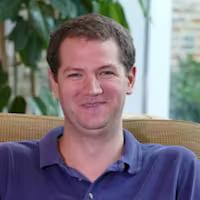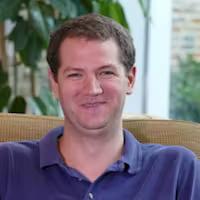This course is part of Programming for Python Data Science: Principles to Practice.
This introductory Python programming course is designed for beginners with limited programming experience who want to start their software development or data science journey. Throughout the course, you'll gain essential skills in algorithmic thinking, Python syntax, code testing, debugging techniques, and modular code development—all fundamental for a successful career in programming. The course follows a practical approach, teaching you a stepwise methodology for problem-solving using algorithms and programming logic. You'll learn to apply common functions, conditional statements, and loops to build Python scripts and programs while working in the VS Code environment to enhance your coding proficiency. The curriculum emphasizes testing and debugging strategies to ensure code reliability, along with performing logical and mathematical operations on datasets. By the final week, you'll apply your new skills to a real data analysis problem: analyzing heart rate data, demonstrating the practical application of your programming knowledge in a data science context.
4
(48 ratings)
18,853 already enrolled
Instructors:
English
پښتو, বাংলা, اردو, 1 more
What you'll learn
Gain a stepwise approach to problem-solving using algorithms and programming logic Apply common functions, conditional statements, and loops to build Python scripts Work with the VS Code programming environment to enhance coding proficiency Use testing and debugging strategies to ensure code reliability Perform logical and mathematical operations on datasets Develop Python programs from scratch to solve data science problems
Skills you'll gain
This course includes:
2.1 Hours PreRecorded video
12 assignments
Access on Mobile, Tablet, Desktop
FullTime access
Shareable certificate
Get a Completion Certificate
Share your certificate with prospective employers and your professional network on LinkedIn.
Created by
Provided by

Top companies offer this course to their employees
Top companies provide this course to enhance their employees' skills, ensuring they excel in handling complex projects and drive organizational success.





There are 4 modules in this course
This comprehensive course introduces Python programming with a focus on data science applications. Students begin by learning algorithm design principles through a logical seven-step framework, ensuring they can methodically approach programming problems. The curriculum then progresses to translating these algorithms into functional Python code, covering essential concepts like variables, expressions, functions, conditional statements, and loops. Students gain practical experience working in the VS Code environment while developing their coding skills. The course emphasizes code validation through testing and debugging techniques, teaching students to create robust test cases and employ scientific debugging methods. In the final module, students apply their knowledge to real-world data analysis, learning to work with lists to filter and perform operations across datasets, culminating in a project analyzing heart rate data.
Algorithm Design
Module 1 · 3 Hours to complete
Translating Ideas into Code
Module 2 · 8 Hours to complete
Validating Your Code
Module 3 · 3 Hours to complete
Diving Deeper with Lists
Module 4 · 9 Hours to complete
Fee Structure
Individual course purchase is not available - to enroll in this course with a certificate, you need to purchase the complete Professional Certificate Course. For enrollment and detailed fee structure, visit the following: Programming for Python Data Science: Principles to Practice
Instructors
Associate Professor of the Practice
Andrew Hilton is an Associate Professor of the Practice in the Department of Electrical and Computer Engineering at Duke University's Pratt School of Engineering, where he has been teaching since 2012. Before joining Duke, he worked as an advisory engineer at IBM. One of the key courses he teaches is ECE 551, an intensive introduction to programming designed to equip graduate students with no prior experience to master programming and tackle advanced courses. In 2015, Professor Hilton received the Klein Family Distinguished Teaching Award for his excellence in teaching. He holds a Ph.D. in Computer Science from the University of Pennsylvania.
Assistant Professor of the Practice at Duke University
Dr. Genevieve M. Lipp is an Assistant Professor of the Practice in the Electrical and Computer Engineering and Mechanical Engineering and Materials Science departments at Duke University. She teaches a variety of courses, including programming in C++, dynamics, control systems, and robotics. Dr. Lipp is passionate about integrating technology into education to enhance learning outcomes and has previously worked in the Center for Instructional Technology at Duke. She holds a Ph.D. in mechanical engineering, focusing on nonlinear dynamics, as well as a B.S.E. in mechanical engineering and a B.A. in German, both from Duke University. In addition to her teaching responsibilities, she serves as the Director of the Duke Engineering First Year Computing program, where she focuses on improving computing education within the engineering curriculum and fostering students' self-efficacy in their studies.
Testimonials
Testimonials and success stories are a testament to the quality of this program and its impact on your career and learning journey. Be the first to help others make an informed decision by sharing your review of the course.
Frequently asked questions
Below are some of the most commonly asked questions about this course. We aim to provide clear and concise answers to help you better understand the course content, structure, and any other relevant information. If you have any additional questions or if your question is not listed here, please don't hesitate to reach out to our support team for further assistance.





